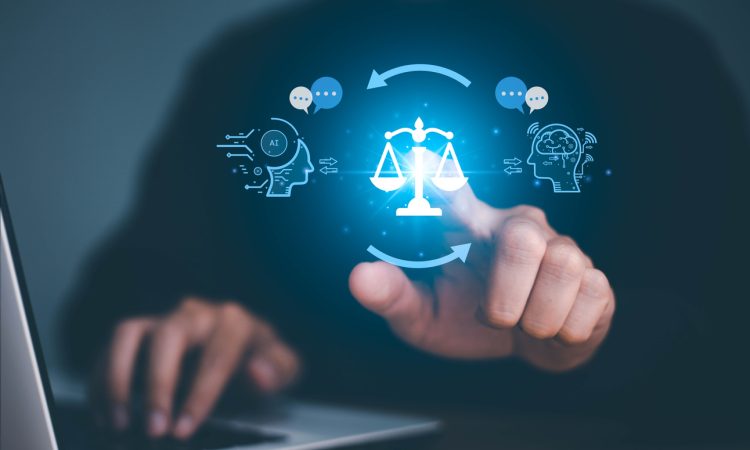|
Getting your Trinity Audio player ready...
|
As artificial intelligence (AI) becomes an ever-growing presence in our daily lives, many who work in the career counselling and development field may be wondering how they can harness the power of AI ethically. AI ethics deal with the moral and ethical implications of AI systems including fairness, transparency and privacy, among others. This listicle offers career service professionals practical tips and advice on this topic, as well as more general content related to AI and the career development field. For more information on AI and career development, check out the special themed issue of CareerWise Weekly on AI in Career Development, published in fall 2023.
12 Risks and Dangers of Artificial Intelligence (AI) [Article]
By looking at the dangers and risks of AI, career professionals can be better prepared when using AI with their clients. For example, risks include the lack of AI transparency, explainability and data privacy as well as the reduction in human influence, which the article states “could result in reduced human empathy and reasoning.” By knowing these risks and dangers, career professionals can be better equipped to face them.
AI: What Does it Mean for the Future of Work? (Career Professionals of Canada) [Article]
Looking more generally at the future of work through the lens of AI, this article also discusses the ethical considerations of using AI through five recommendations which were made by the US-based Centers for Disease Control and Prevention. These recommendations are that AI be effective, explainable, accountable, secure and fair.
AI in Higher Education: Ethical Career Guidance Modernisation (LinkedIn) [Article]
Career consultants who work with university students can use AI ethically by following certain protocols. Among these protocols are prioritizing transparency, obtaining informed consent from clients and safeguarding data while personalizing guidance and oversight.
AI in HR: Are you cool with being recruited by a robot? Our studies reveal job candidates’ true feelings (The Conversation) [Article]
This article looks into the perceptions of jobseekers into the use of AI for recruitment. Citing a survey from 2023, “only 31% of respondents would agree to allow AI to decide whether or not they get hired. But that figure rises to 75% if there’s also a human presence involved in the process. Still, 25% of participants believe that any use of artificial intelligence in recruitment is unfair.” Ultimately, the article states, the key is to find a balance between human and AI.
#TheWeekInCareers (LinkedIn) [Newsletter]
Chris Webb’s weekly roundup of news in the career development field covered generative AI and specifically discussed the ethical considerations. Webb says career development professionals must adhere to the obligations in the Code of Ethics for Career Development Professionals in their jurisdiction (Webb references the United Kingdom code of ethics). In particular, Webb references “Transparency (in terms of being up front about GenAI’s limitations), Accessibility (in terms of whether all clients will have access to the different AI tools we might discuss e.g. digital poverty) and Autonomy (could leaning on AI tools take away the agency of our clients?).”
Ethics and discrimination in artificial intelligence-enabled recruitment practices (Nature Portfolio) [Academic Article]
The findings in this study suggest that AI-enabled recruitment has the potential to enhance recruitment but algorithmic bias results in discriminatory hiring practices. The conclusion of this study finds that these biases and discriminatory results can be counteracted by “strengthening management measures, such as corporate ethics and external oversight.”
Ethics of AI (University of Helsinki) [Open-access course]
The Ethics of AI is a free online course created by the University of Helsinki for anyone interested in the ethical aspects of AI. The course will cover why AI raises concerns about its ethically acceptable use and development, help you become familiar with the ethical questions and concepts related to contemporary AI and offer practical exercises.
Recommendations For Client Use And Caution Of Artificial Intelligence (American Counselling Association) [Article]
Focusing on counselling generally, the recommendations and advice in this article can be applied more specifically in the career counselling context. Specifically, counsellors need to:
- obtain informed consent from the client
- ensure any personal information is kept private and safely maintained
- understand the limitations and risk involved when using AI
- understand the challenges regarding diversity, equity, and inclusion within the sphere of AI
The Biggest Ethical Challenges For Artificial Intelligence (Bernard Marr) [Video]
For those who prefer audio-visual learning, this video covers the biggest ethical challenges in AI which include biases, privacy, and intellectual property using the example of AI to create text. These issues can be applied in the career development field.
Additional reading:
- 12 New Jobs For The Generative AI Era
- Ethics of AI-Enabled Recruiting and Selection: A Review and Research Agenda
- Integrating Ethics and Career Futures with Technical Learning to Promote AI Literacy for Middle School Students: An Exploratory Study
- Navigating the New Frontier: The Social Sector Role in Addressing Societal Crises via Responsible Use of AI







